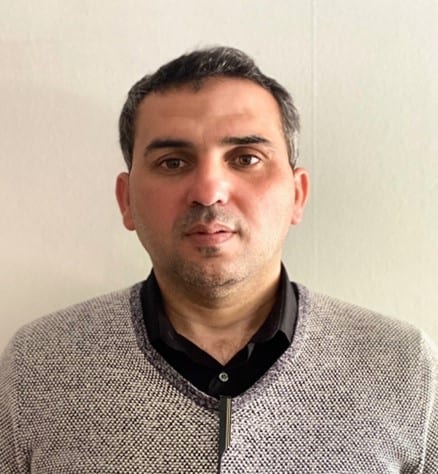The Israeli government’s decision to evict Palestinians from the Jerusalem neighbourhood of Sheikh Jarrah and its raids on Islam’s third holiest site, the Noble Sanctuary of Al-Aqsa, attacking Palestinian worshippers in the final days of Ramadan, is what fuelled the current cycle of violence. The fuse was lit in early May when four Palestinian families of 30 people in total were threatened with expulsion from their homes. The families had lived there since the mid-1950s when the UN Relief and Works Agency for Palestine Refugees in the Near East (UNRWA) and the government of Jordan gave them the homes after they had been ethnically cleansed from their villages and towns by Zionist militias during the 1948 Nakba. The Israelis occupied East Jerusalem and the rest of the West Bank, and the Gaza Strip, during the 1967 Six Day War.
Settlers and their organisations, as well as the right-wing Israeli government, now claim ownership of the Sheikh Jarrah properties. This has outraged the Jerusalemites, not least because they have authentic documentation proving their ownership of the properties and various countries and agencies, including the UN have described Israel’s actions as violations of international law and called on the occupation state to halt the evictions.
The Palestinians in Jerusalem are spiritually and culturally connected to Al-Aqsa Mosque, and generally greet each other daily with “How is the Mosque?” before “How is your family/children/business?” That connection takes precedence over their own national identity. As such, Jerusalem has been a natural part of the tension between Israeli occupation forces and Palestinians for decades, but even more so over the past few weeks, with provocative attacks by Jewish settlers and the police.
It is tempting to think that the government of Prime Minister Benjamin Netanyahu has engineered the current situation to avoid losing his grip on the premiership, or even to delay his trial on corruption charges. The government knows full well the emotions of the Palestinians during Ramadan, so why provoke them in Sheikh Jarrah and Al-Aqsa during the fasting month?
READ: Egypt will never be an honest broker for Palestine until facts really change on the ground
What is evident from all that has been happening is that it is the young people who are showing real leadership these days. The national Palestinian leadership lost its influence over Jerusalem after the departure of Faisal Husseini in 2001. It is the young people who challenged Israel’s decision to install metal detectors and additional closed-circuit television cameras at Al-Aqsa Mosque in July 2017; they and other Muslim worshippers forced open the Bab Al-Rahma prayer facility within the Noble Sanctuary in 2019, which was closed by Israel in 2000; and it was they removed the barricades around Damascus Gate last month. Young people led these actions without any engagement by the political leadership, or the Jordanian Religious Endowment (Waqf) staff who administrate the daily affairs of the mosque.
It was to these unprecedented events in Jerusalem that Hamas responded, incidentally soon after Palestinian President Mahmoud Abbas postponed the legislative election scheduled for this month, ostensibly because Israel was refusing to allow Palestinians in Jerusalem to take part. The movement’s response was to fire rockets from Gaza.
The subsequent Israeli military offensive against the Palestinians in the besieged territory has targeted the infrastructure as well as residential tower blocks. In doing so, Israel stands accused of committing war crimes for killing innocent civilians, including women and children. The UN Special Coordinator for the Middle East Peace Process, Tor Wennesland, tweeted: “Stop the fire immediately. We’re escalating towards a full scale war. Leaders on all sides have to take the responsibility of de-escalation. The cost of war in Gaza is devastating & is being paid by ordinary people. UN is working w/ all sides to restore calm. Stop the violence now.”Moreover, even the Palestinian citizens of Israel have risen in protest at what has been going on in Jerusalem and Gaza. Such protests are relatively unprecedented and have spread to towns and “mixed communities” like Lod, Ramle and Jaffa, as well as the Arab town of Umm Al-Fahm, a stronghold of the Islamic movement. Around 20 per cent of Israel’s population are Palestinians; they are mostly Muslims with a Christian minority.
READ: US public figures call out Israel’s attacks on Gaza
These protests effectively take us back to the beginning of the Palestinian conflict with Jewish immigrants prior to the Nakba and creation of the state of Israel in Palestine. They also challenge the Israeli claim that Jerusalem is the “undivided capital” of the occupation state. Israel’s annexation of the city is illegal under international law and is not recognised by the vast majority of the UN’s member states.
Most Palestinians now look to a one-state solution rather than the “two states” promoted by the international community. Israel has basically rejected a two state approach since 1999. The people of occupied Palestine will never give up on their legitimate rights, including the right to return to their land. The international community needs to understand this, and then put pressure on Israel to end its deliberate targeting of civilians and respect the Palestinians’ right to self-determination and statehood. If the West really wants to de-escalate the current situation and save lives, a good place to begin would be for the European countries and the US to recognise the State of Palestine without delay.
The views expressed in this article belong to the author and do not necessarily reflect the editorial policy of Middle East Monitor.

![Israeli police use tear gas, rubber bullets and stun grenades to disperse Palestinians who were in Al-Aqsa Mosque compound in East Jerusalem on 10 May 2021 [Eyad Tawil/Anadolu Agency]](https://i0.wp.com/www.middleeastmonitor.com/wp-content/uploads/2021/05/20210510_2_48212484_65004410.jpg?fit=920%2C613&ssl=1)

![Death toll in Israeli attacks on Gaza Strip keeps rising...- Cartoon [Sabaaneh/MiddleEastMonitor]](https://i0.wp.com/www.middleeastmonitor.com/wp-content/uploads/2021/05/IMG_2740.jpg?resize=920%2C650&ssl=1)






